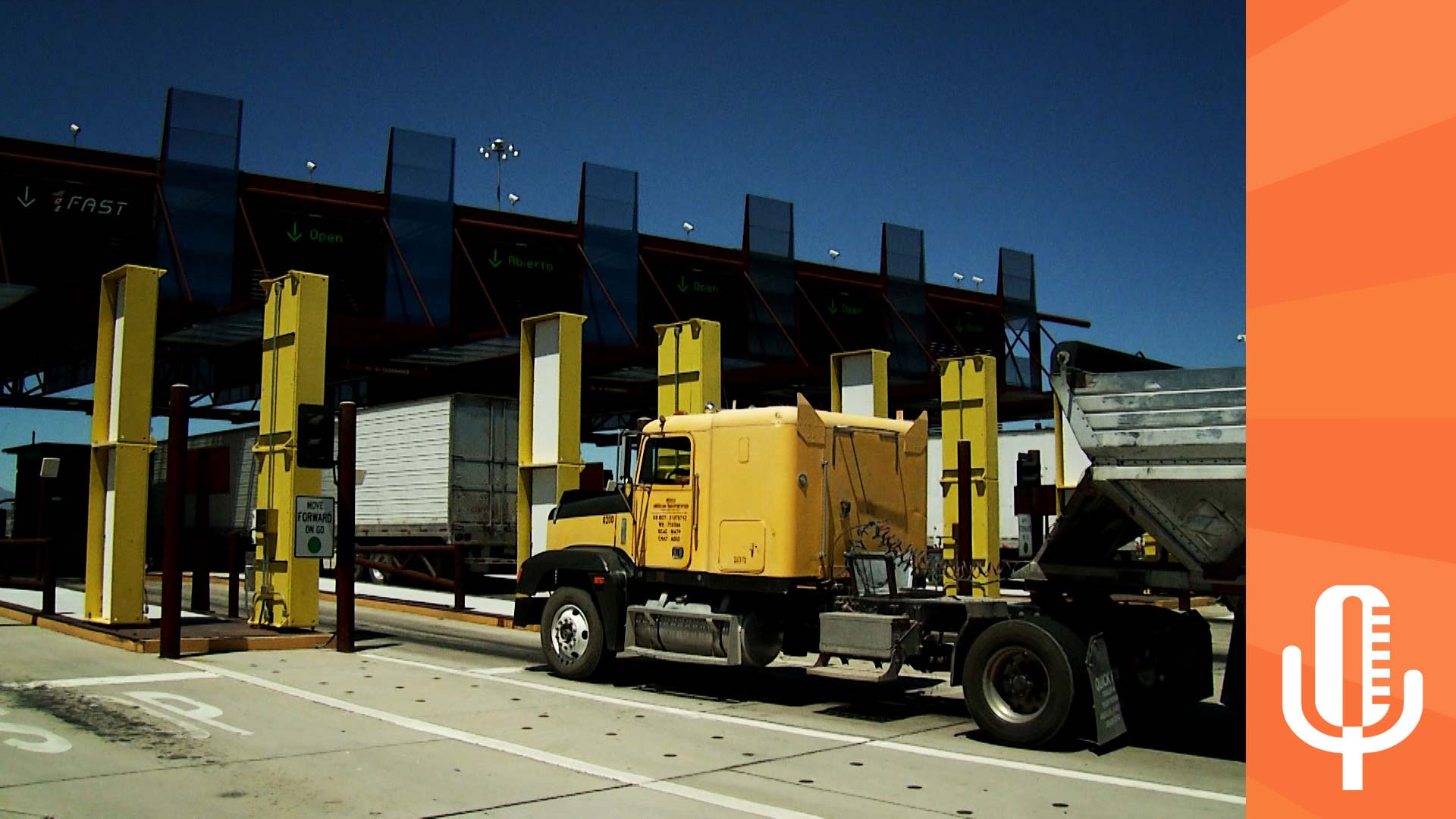 A semi passes through the Mariposa Port of Entry in Nogales.
A semi passes through the Mariposa Port of Entry in Nogales.
The Buzz for December 6, 2024

President-elect Donald Trump has made a variety of statements about tariffs he plans to enact once in office.
"We will cut your taxes and inflation, slash your prices, raise your wages and bring 1000s of factories back to America and back to Michigan. A lot of it will be using my favorite word, my favorite word, tariff," he told a crowd in Grand Rapids, Mich. on November 4.
He also claimed that he could use tariffs against countries that border the US to cut off illegal immigration and fentanyl smuggling.
That language could be meant to work around the usual path that tariffs have to take through Congress, according to Dr. Tom Fullerton, Professor of Economics & Trade in the Americas Chair at the University of Texas at El Paso.
"Under special circumstances, the executive branch can enact tariffs, and what is required is to declare an emergency, which is why President elect Trump is tying this in with immigration and narcotics because he's declaring that there is a disaster being inflicted on the United States by Mexico, Canada and China. This is really stretching the truth pretty severely."
But, his claims about who pays for those tariffs often seem disconnected from the truth of how import taxes work.
"A lot of the big importers, they pay into escrow accounts that are, you know, let's see go to support their quarterly sales tax payments, or their quarterly federal tax payments," said Dr. Fullerton. "And so it creates a lot of business for accountants. Tax accountants, let's see, as well as financial companies, some of the smaller importers, they probably have to pay it. Let's see before they can get the goods released from the customs warehouses."
That issue was echoed by Matt Mandel, a vice president at Sunfed, a company that works with produce growers in Mexico to import fruits and vegetables into Arizona and beyond.
"The popular misconception with tariffs is that they're paid by foreign nationals or foreign companies," said Mandel. "However, we, as the US importer of these goods are the ones that are responsible for paying for those tariffs. I don't want to alarm anybody, but our margins are very thin to begin with, so any additional cost that is added above and beyond what we are already absorbing is immediately going to be passed on to our customers."
Mandel said any tariffs that apply to produce from Mexico would impact his company on Day One.
"Once the proclamation has been made that the tariffs are going to into effect, anything that is imported from that moment on will require the tariff to be paid upon importation of those goods. So, you know, apart from the fact that you know, it would 100% cash strap us on day one, the cost of those goods would also go up."
Another good that takes up a significant amount of most Southern Arizonans' income could also be impacted by tariffs. That is the cost of building new homes, be they for purchase or rent.
"Over the past few years, the price of all goods and materials that go into the construction of a home have escalated significantly, and I think you can see that when you look at the prices of the new homes," said David Godlewski of the Southern Arizona Home Builders Association. "And so it's something that the builders are constantly dealing with. It's not just limited to lumber, but lumber is certainly a substantial component. But builders have been trying to find ways to make sure they're being as efficient as possible in the process. But it's certainly a big component."
A chief concern could be Canadian lumber. While the US timber industry is large, more than $28 billion of lumber is imported annually from Canada. That product already has a 15% tariff on it after accusations of dumping.
There are also concerns about what are called 'iron fasteners,' hardware used in the construction process such as screws, nails, bolts and more. Roughly $6.3 billion worth of such good were imported last year, largely from Taiwan and China.
"Tariffs are definitely something that we pay attention to. You know, anything that could potentially have a an inflationary aspect to it is going to make its way into the final price of the price of the home, and so we are monitoring what's happening at the at the federal level very closely. You know, it's our hope that certainly any type of approach to increasing tariffs is done in a very strategic and calculated way. And of course, we're very encouraged to hear talk about deregulation and trying to find other things to make the process easier that would then have an offsetting cost to any increase related to the tariffs," said Godlewski.



By submitting your comments, you hereby give AZPM the right to post your comments and potentially use them in any other form of media operated by this institution.